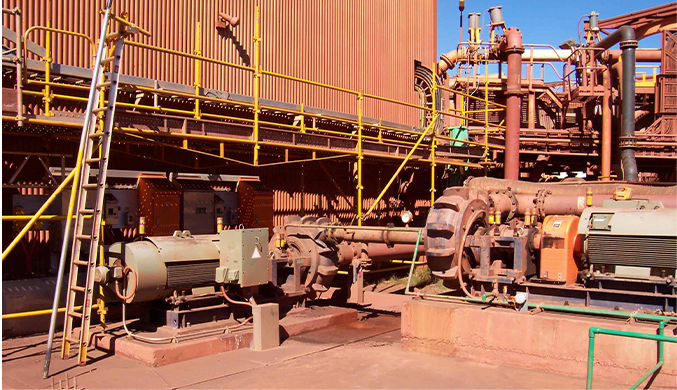English
- Afrikaans
- Albanian
- Amharic
- Arabic
- Armenian
- Azerbaijani
- Basque
- Belarusian
- Bengali
- Bosnian
- Bulgarian
- Catalan
- Cebuano
- Corsican
- Croatian
- Czech
- Danish
- Dutch
- English
- Esperanto
- Estonian
- Finnish
- French
- Frisian
- Galician
- Georgian
- German
- Greek
- Gujarati
- Haitian Creole
- hausa
- hawaiian
- Hebrew
- Hindi
- Miao
- Hungarian
- Icelandic
- igbo
- Indonesian
- irish
- Italian
- Japanese
- Javanese
- Kannada
- kazakh
- Khmer
- Rwandese
- Korean
- Kurdish
- Kyrgyz
- Lao
- Latin
- Latvian
- Lithuanian
- Luxembourgish
- Macedonian
- Malgashi
- Malay
- Malayalam
- Maltese
- Maori
- Marathi
- Mongolian
- Myanmar
- Nepali
- Norwegian
- Norwegian
- Occitan
- Pashto
- Persian
- Polish
- Portuguese
- Punjabi
- Romanian
- Russian
- Samoan
- Scottish Gaelic
- Serbian
- Sesotho
- Shona
- Sindhi
- Sinhala
- Slovak
- Slovenian
- Somali
- Spanish
- Sundanese
- Swahili
- Swedish
- Tagalog
- Tajik
- Tamil
- Tatar
- Telugu
- Thai
- Turkish
- Turkmen
- Ukrainian
- Urdu
- Uighur
- Uzbek
- Vietnamese
- Welsh
- Bantu
- Yiddish
- Yoruba
- Zulu
Telephone: +86 13120555503
Email: frank@cypump.com
Oct . 12, 2024 10:43 Back to list
centrifugal slurry pumps
Understanding Centrifugal Slurry Pumps Key Features and Applications
Centrifugal slurry pumps play a critical role in various industrial applications, particularly in the handling and transportation of abrasive and viscous materials. They are essential in sectors such as mining, mineral processing, and wastewater treatment. This article delves into the mechanics of these pumps, their features, advantages, and applications.
What is a Centrifugal Slurry Pump?
A centrifugal slurry pump is a type of pump designed to transport slurries—mixtures of solids and liquids that can be abrasive and thick. These pumps operate using a rotating impeller to impart kinetic energy to the slurry, converting it into hydraulic energy that moves the slurry through the pump and into a piping system. Unlike standard centrifugal pumps, slurry pumps are specifically engineered to handle the unique challenges posed by slurries, including high-density materials and corrosive substances.
Key Features of Centrifugal Slurry Pumps
1. Durable Construction Slurry pumps are built with materials that can withstand harsh conditions. Components are often made from wear-resistant alloys or rubber linings, which prevent erosion and extend the lifespan of the pump.
2. Wide Range of Capacities Centrifugal slurry pumps come in various sizes and capacities, allowing them to handle different volume flows and particle sizes, making them versatile for multiple applications.
3. High Efficiency These pumps are designed to maximize flow rates while minimizing energy consumption. Their efficiency is crucial in reducing operational costs in large-scale operations.
4. Adjustable Impeller Many slurry pumps feature an adjustable impeller, allowing operators to optimize performance based on the specific characteristics of the slurry being pumped.
5. Means of Transporting Solids Slurry pumps effectively transport solid particles suspended in liquid, making them essential in applications where traditional liquid pumps would fail due to sedimentation.
Advantages of Centrifugal Slurry Pumps
The advantages of centrifugal slurry pumps are evident across various industries
centrifugal slurry pumps

- Enhanced Reliability With robust materials and designs, these pumps are less prone to wear and tear, enhancing reliability and reducing downtime in industrial operations.
- Cost-Effectiveness Although the initial investment may be higher than standard pumps, the durability and low maintenance requirements of slurry pumps lead to lower long-term operational costs
.- Versatility These pumps can handle a wide range of slurries, including those with varying viscosities and particle sizes, which makes them suitable for diverse applications.
- Improved Safety By efficiently handling hazardous materials, slurry pumps minimize the risk of leaks and spills, contributing to safer operational environments.
Applications of Centrifugal Slurry Pumps
Centrifugal slurry pumps are extensively used in various sectors
- Mining and Mineral Processing They transport minerals, coal, and tailings in mining operations, handling highly abrasive materials efficiently.
- Wastewater Treatment These pumps play a vital role in transporting sludge and other solid waste materials in treatment facilities.
- Pulp and Paper Industry They are used to move pulp slurry, minimizing clogging and ensuring a smooth flow through production processes.
- Construction In the construction sector, slurry pumps are used to handle cement and grout, allowing for effective transport in various projects.
Conclusion
Centrifugal slurry pumps are indispensable in many industrial sectors that require the movement of abrasive and viscous materials. With their durable construction, efficient performance, and adaptability to diverse applications, these pumps continue to support vital processes in mining, wastewater treatment, and beyond. Understanding their key features and advantages can help industries select the right pump for their specific needs, thereby enhancing operational efficiency and reducing costs in the long run. As technology advances, the design and functionality of slurry pumps are expected to evolve, further enhancing their performance and utility in demanding industrial environments.
-
ISG Series Vertical Pipeline Pump - Chi Yuan Pumps Co., LTD.|Advanced Hydraulic Design&Energy-Efficient Solutions
NewsJul.30,2025
-
ISG Series Vertical Pipeline Pump - Chi Yuan Pumps Co., LTD.
NewsJul.30,2025
-
ISG Series Vertical Pipeline Pump - Chi Yuan Pumps Co., LTD.|energy-efficient fluid handling&industrial durability
NewsJul.30,2025
-
ISG Series Vertical Pipeline Pump - Chi Yuan Pumps | Advanced Engineering&Industrial Efficiency
NewsJul.30,2025
-
ISG Series Pipeline Pump - Chi Yuan Pumps | High Efficiency, Energy Saving
NewsJul.30,2025
-
ISG Series Vertical Pipeline Pump-Chi Yuan Pumps|High Efficiency&Reliable Performance
NewsJul.29,2025










